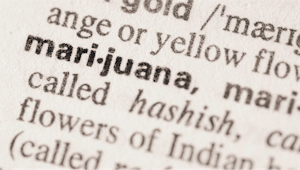
Photo by Daniel Prado
Slang For Weed In Spanish: 8 Essential Terms
Here are some slang terms for weed in Spanish.
Learning some Spanish words can be quite useful. Whether you are traveling in a Spanish-speaking country or you want to surprise your friends by saying more than just “hola” these words should be common knowledge if you are a cannabis lover.
In Spanish-speaking communities, the language used to talk about cannabis encapsulates the essence of cultural identity, regional nuances, and social attitudes toward the plant.
As in English, we can say marijuana in different ways, such as weed, grass, herb, ganja, Mary Jane, and more, the same is true in Spanish. In fact, the Spanish language is so broad that it varies significantly from country to country, so the richness of the language is quite wide.
Either way, whether you’re thinking of asking Spanish speakers or just wish you could talk about it in Spanish, here are some of the most popular slang terms for marijuana in Spanish.
Mota Slang: 8 Examples

Photo by Stock
As we already told you, talking about cannabis in Spanish will also depend on the country you are in, as it changes significantly from place to place.
- Crippy: Puerto Rico
- Macoña: Chile, El Salvador, Uruguay, and Peru.
- Marimba: Mexico, Cuba, Puerto Rico, Venezuela, Peru, Bolivia, Colombia, and Chile.
- Bareta: Colombia
- Cachimba: Puerto Rico
- Chala: Argentina
- Cogollo: Spain and Chile
- Ganja: Jamaica
How To Ask For Weed In Spanish

Photo by Darwin Boaventura
Knowing the discreet ways in which you can ask for cannabis in different Spanish-speaking places can be quite useful if you are traveling.
Here are some discreet ways to ask about buying cannabis in different Spanish-speaking regions. Remember to consider cultural sensitivity and legality.
Quiero comprar mota – México
“I want to buy mota.”
Podrías venderme un poco de faso? – Argentina
“Could you sell me a bit of ‘faso’?” (Note: ‘Faso’ is a colloquial term used in Argentina).
Tenes algo de churro para vender? – Uruguay
“Do you have some ‘churro’ to sell? “* (Note: ‘Churro’ is a common expression in Uruguay).
Podrías venderme un poco de maría? – Spain
“Could you sell me a bit of ‘maría’?” (Note: ‘María’ is a commonly used term in Spain).
Donde puedo comprar hierba? – Colombia
“Where can I buy hierba?” (Note: ‘Hierba’ is a commonly used term in Colombia).
Remember always to be aware of the legality of marijuana in the specific country you are in, as laws vary significantly.
Rolling Up: Weed Joint In Spanish
If you want to know how to say joint in Spanish, it also varies a lot from country to country; perhaps the most universal term in the Spanish language is “porro”.
Here are some terms that are used to refer to a joint of marijuana in different countries:
Porro – This term is the most well-known in the Spanish-speaking community when referring to a joint of weed; it is mainly used in countries such as Argentina, Venezuela, and Colombia.
Petardo – In Spain, a “petardo” is a colloquial expression for a marijuana joint.
Toque – In Mexico, the word “toque” means a weed cigarette.
Faso – In Argentina and Uruguay, this term is also widely used to talk about cannabis cigarettes.
Rambo – This is slang for a big joint in parts of Central America, especially El Salvador.
Marijuana Quality In Spanish

Photo by Alexander Grey
To understand the quality of marijuana in different Spanish-speaking countries, there are also unique expressions that are used in each place. Here are some examples of slang used to describe both good and bad quality, and the country associated with each term:
Good Quality
- Colombiana: This term is used in El Salvador to refer to high-quality marijuana.
- Moño: In Venezuela, the term “moño” is used to describe excellent quality marijuana.
- Crippy, Kripy, Creepy: Refers to very high-quality weed in Puerto Rico and Colombia.
Poor Quality
- Pasto: In Colombia and Honduras, the term “pastor” refers to low-quality marijuana; the word pastor means “grass” in English, hence the relation with “it doesn’t do anything.”
- Charbasca: In Costa Rica, the word “charbasca” is used to denote inferior-quality marijuana.
- Paraguayo: Although it generally means “Paraguayan”, in places like Argentina it can refer to brick weed, which is of lower quality and often imported from Paraguay.
Herb Recommended Products:
READ MORE










